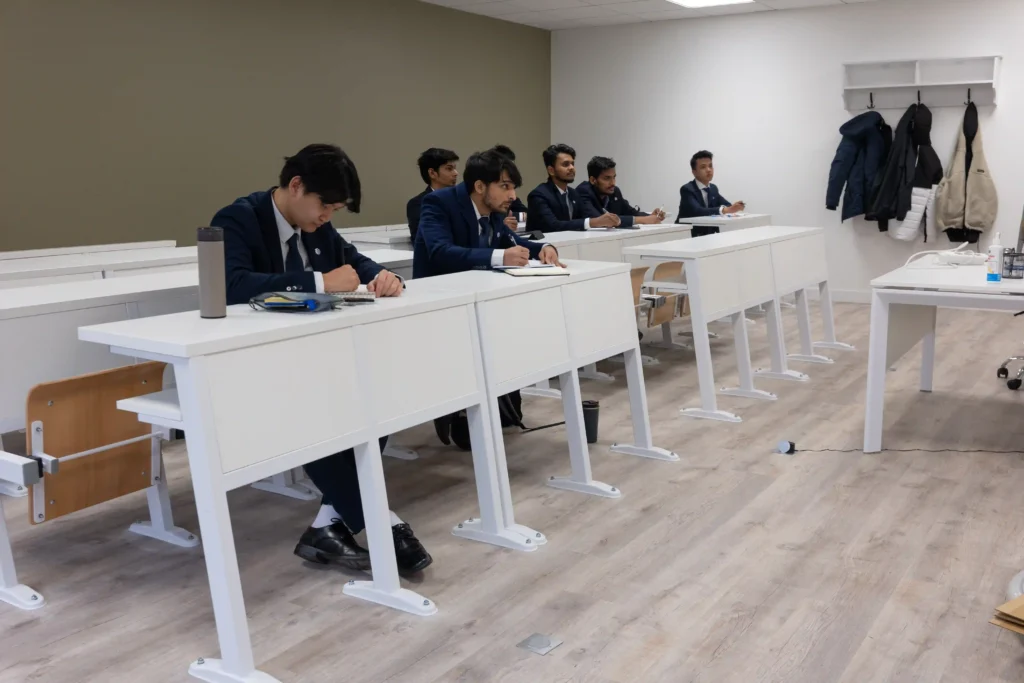Studying in Paris offers a unique opportunity that combines academic excellence with a culturally rich experience. The city serves as a hub for creativity, innovation, and tradition, making it an ideal location for those seeking a comprehensive educational journey. From world-renowned institutions to a vibrant student life, Paris provides an unparalleled environment for learning and personal growth.
For anyone considering this path, understanding the local context is crucial. Exploring the cost of living, housing options, and mobility within the city can greatly influence one’s decision. Paris may have a reputation for being an expensive city, but there are various resources and funding options available for international students that can ease financial concerns.
Navigating the streets of Paris and immersing oneself in its culture is part of the allure. A well-planned approach to living and studying in the city can enhance the experience significantly, making it not just educationally beneficial but also personally enriching.
Why Study in Paris?
Paris offers a unique blend of educational excellence, cultural richness, and numerous professional opportunities. It serves as a global hub for aspiring students looking to enhance their academic and personal growth in a vibrant environment.
Educational Excellence
Paris is home to some of the world’s top universities and specialised institutions. Renowned for their high academic standards, educational programmes include a variety of disciplines, from humanities to sciences.
Students benefit from cutting-edge research facilities and access to leading academics. Institutions like Sorbonne University and Sciences Po are internationally recognised.
Additionally, many courses are offered in English, catering to international students. This diverse educational landscape fosters intellectual growth and prepares students for the global job market.
Cultural Hub
Rich in history and culture, Paris is a living museum filled with art, literature, and architecture. Students can immerse themselves in iconic landmarks like the Louvre and Notre-Dame Cathedral.
The city’s vibrant cultural scene includes numerous festivals, exhibitions, and performances throughout the year. This lively atmosphere encourages students to engage with local customs and traditions.
Furthermore, Paris’s diverse population offers exposure to multiple cultures and perspectives, enhancing the overall student experience. This cultural immersion contributes positively to personal and academic development.
Global Networks
Studying in Paris allows students to build valuable global networks. The city attracts individuals from various backgrounds, including international students and industry professionals.
Many institutions foster connections with businesses and organisations through partnerships and internships. Networking events and career fairs provide further opportunities for students to meet potential employers.
This access to a broad network can be crucial for future career success. Students often find collaborations with peers that lead to innovative projects and business ventures.
Language Skills
Being in Paris provides an ideal environment for language acquisition, especially for students keen to learn French. Immersed in everyday interactions, students can practice their language skills in real-world contexts.
Classes focused on language are often complemented by local cultural experiences, solidifying understanding and fluency.
Bilingual graduates are increasingly sought after in various professions, making language proficiency an asset in the global job market. Students gain not only linguistic skills but also cultural insight that enhances communicative effectiveness.
Career Opportunities
Paris boasts a thriving job market in sectors such as fashion, finance, technology, and the arts. Many multinational companies have their headquarters in the city, providing ample internship and job opportunities for students.
The city’s strategic location in Europe facilitates a wide network of connections across borders. Networking events and career services offered by educational institutions amplify job prospects.
Experience gained in Paris can bolster a graduate’s resume, showcasing adaptability and international exposure. This advantage often leads to enhanced career trajectories for students embarking on their professional journeys
Pocket Guide to Paris
Paris is a vibrant city rich in culture, history, and unique experiences. Understanding practical aspects of life in Paris can greatly enhance any student’s time there.
Navigating the City
The Paris Métro is an efficient way to traverse the city. With 16 lines and over 300 stations, it connects key areas. A carnet, which is a book of ten tickets, is cost-effective for frequent travel. Students can also benefit from discounted monthly passes.
Buses and trams offer scenic views. Walking is another great option, as many attractions are located close to each other. Navigating with Google Maps or the CityMapper app can ease the journey.
It is advisable to learn basic French phrases. This not only helps in daily interactions but also shows respect for the local culture.
Cultural Etiquette
Politeness is crucial in French culture. A simple “Bonjour” when entering shops or restaurants goes a long way. It is customary to greet staff before asking for assistance.
Dining customs vary, with meals often served later in the evening. Tipping is appreciated but not obligatory; rounding up the bill is typically sufficient.
Dress codes can also be more formal compared to other cities. Smart-casual attire is common in restaurants and cafes. Understanding these nuances aids in blending in with Parisians.
Also Read: Paris best cities in france for international students
Safety Tips
Paris is generally safe, but like any major city, it has its precautions. Be aware of pickpockets, especially in crowded areas like Montmartre or on public transport. Keeping valuables secure and in sight is advisable.
Emergency services can be reached by dialling 112. Learning the location of the nearest hospital, police station, or embassy can be invaluable.
Using reputable taxis or ride-sharing services can enhance safety during late-night travel. It is important to remain vigilant and trust one’s instincts while exploring the city.
Living in Paris
Living in Paris presents a unique blend of culture, convenience, and vibrant city life. However, potential residents must consider the cost of living, housing options, and mobility within the city.
Cost of Living
The cost of living in Paris can be high compared to other European cities. Monthly expenses generally range from €1,200 to €2,000, depending on lifestyle and accommodation choices.
Key Expenses:
- Rent: €1,000 to €2,500 for apartments in desirable areas.
- Groceries: Approximately €200 to €300 per month for one person.
- Transportation: Monthly metro pass costs around €76.
Dining out can vary significantly, with a meal at an inexpensive restaurant averaging around €15. Understanding these costs is essential for budgeting effectively.
Housing in Paris
Housing options in Paris can vary widely in price and type. Students often choose shared apartments or student residences due to their affordability and social opportunities.
Key areas for students include the Latin Quarter and Montparnasse.
Types of Accommodation:
- Studios: €800 to €1,200 per month.
- Shared Apartments: €400 to €800 per month per person.
- Student Residences: Up to €700 per month, often including amenities.
Finding suitable housing can require time and research. It is advisable to start the search early and explore platforms like LeBonCoin and Airbnb for options.
Mobility in Paris
Paris boasts an extensive public transport system, making it easy for residents to navigate the city. The RATP network includes metro, buses, and trams.
Key Features:
- Metro: 16 lines covering 214 km, with trains running every 2-7 minutes.
- Buses: Over 60 routes, often less crowded than the metro.
- Trams: 4 lines encircling the city, connecting to metro stations.
Investing in a Navigo pass provides unlimited travel for €75 per month. Biking is also popular, with numerous bike-sharing schemes available
Funding Your Studies in France
Financing studies in France requires careful consideration of available options. Students can explore scholarships, financial aid, and part-time work opportunities to alleviate costs.
Scholarships
Several institutions and organisations offer scholarships for international students in France. Notable scholarships include the Eiffel Excellence Scholarship Programme, which supports highly qualified students, and the Charpak Scholarship for Indian students.
Eligibility criteria vary, often requiring candidates to demonstrate academic merit or financial need. Applications typically involve submitting academic records, recommendation letters, and personal statements.
It is advisable for students to check with their specific universities as many provide internal scholarships based on performance or field of study.
Financial Aid
Financial aid may be accessible to students pursuing studies in France. The French government and various universities provide assistance based on need.
Students may qualify for government grants or subsidised loans. For instance, the Caisse des Dépôts et Consignations offers student loans at favourable interest rates.
Additionally, some NGOs and foundations offer financial support specifically targeted at international students, allowing for a more manageable budget during their studies.
Part-Time Work Opportunities
Part-time work can be an essential funding source for students in France. Students from non-EU countries are typically allowed to work up to 20 hours per week during semesters.
Popular job options include roles in cafes, restaurants, and retail. Students can also seek positions related to their field of study, such as internships or research assistantships.



